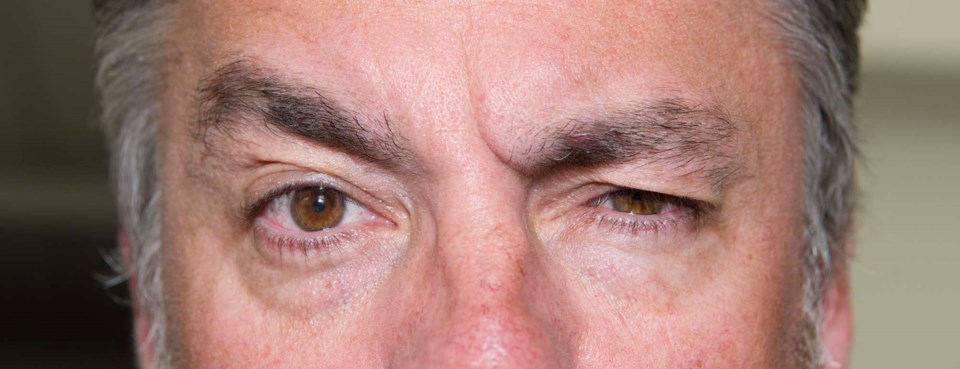A MacEwan University researcher won a very silly international award last week for proving you can spot narcissists by looking at their eyebrows.
MacEwan University psychology professor Miranda Giacomin and Nicholas Rule of the University of Toronto received the 2020 Ig Nobel Prize for psychology on Sept. 17.
The Ig Nobel Prizes are an initiative of the magazine Annals of Improbable Research and highlight real scientific research that makes people laugh, then think.
Speaking from Boston, Mass., host Marc Abrahams said this year’s award ceremony – the 30th – was held for the first time exclusively online instead of in-person at Harvard University. The ongoing pandemic made it impossible for the usual 1,100 guests to gather in one place for the event’s many unique traditions, which include a mass paper-airplane toss, a mini-opera, and the “Welcome, welcome” address (which consists of the words, “Welcome, welcome”).
The online format made the actual award ceremony a bit tricky – recipients traditionally have awards physically handed to them by an actual Nobel Prize winner.
Abrahams said organizers sent recipients and presenters a PDF file of this year’s award (a cube with a flea, cockroach, computer bug, norovirus and Volkswagen Beetle on it – the theme of this year’s ceremony was “bugs”) to print and assemble. The presenter “passed” the cube off one side of the screen and the winners “received” it on the other. Winners also received a $10 trillion Zimbabwean dollar bill – a running gag from the 2009 award ceremony – delivered the same way.
This year’s 10 recipients studied many topics, including the effects of high-frequency vibrations on the shape of an earthworm, the prevalence of arachnophobia amongst entomologists, and the effectiveness of a knife made from frozen human faeces.
Eyebrow-raising research
Giacomin said her prize-winning study was done at the U of T back in 2018 and stemmed from her ongoing research into subclinical grandiose narcissism – the tendency of people to be vain, self-focused and egotistical.
“Narcissism can be used as a motivational strategy to get ahead,” Giacomin said, as it can make people seem confident and thus better potential mates or leaders. But narcissism brings with it other negative behaviours people want to avoid, giving them an incentive to spot it in advance.
Previous research had found that people could consistently identify a narcissist by looking at the person’s face, Giacomin said. She and her team sought to determine what features of the face tipped people off.
To do so, the team tested a group of people for narcissism and took photos of their faces. The team showed those photos to volunteers and asked them to rate how narcissistic each person was, removing different parts of the photos each time.
To their surprise, the team found that participants could successfully detect narcissism from the photos, but only if the photo included eyebrows. Even just one brow worked, unless it was a man’s left brow. Putting high- and low-narcissism brows on a narcissism-neutral face also made participants see the face as more or less narcissistic, respectively.
Giacomin said the team found bold, dark, dense eyebrows that stood out on the face were most typically found on more narcissistic persons. It wasn’t clear if narcissists tended to be born with such brows or if they happened to style them to look this way.
“Eyebrows actually are actually really important in terms of facial recognition,” she said, as we can see them from far away and use them to sense emotional cues (e.g. a cocked eyebrow for skepticism).
Giacomin said this study suggests narcissism is encoded in our faces, which can convey large amounts of information through very subtle cues.
It also suggests a person could look narcissistic by buffing up their eyebrows, she continued. While a narcissist could theoretically conceal their true nature by shaving off their brows, they probably wouldn’t bother, as narcissists tend to take pride in their narcissism.
Abrahams said this study could help people quickly spot narcissists in a room so they could avoid or join them.
“Pretty much anybody that knows about that study is going to laugh at it.”
While Giacomin said this study has made her more conscious of her own eyebrows, she said its use as a detector is limited compared to the many other signals narcissists give off.
Giacomin said she was completely surprised to learn she had received this award, and plans to display it and the $10 trillion bill in her office.
The 30th First Annual Ig Nobel Awards ceremony can be viewed at improbable.com.



